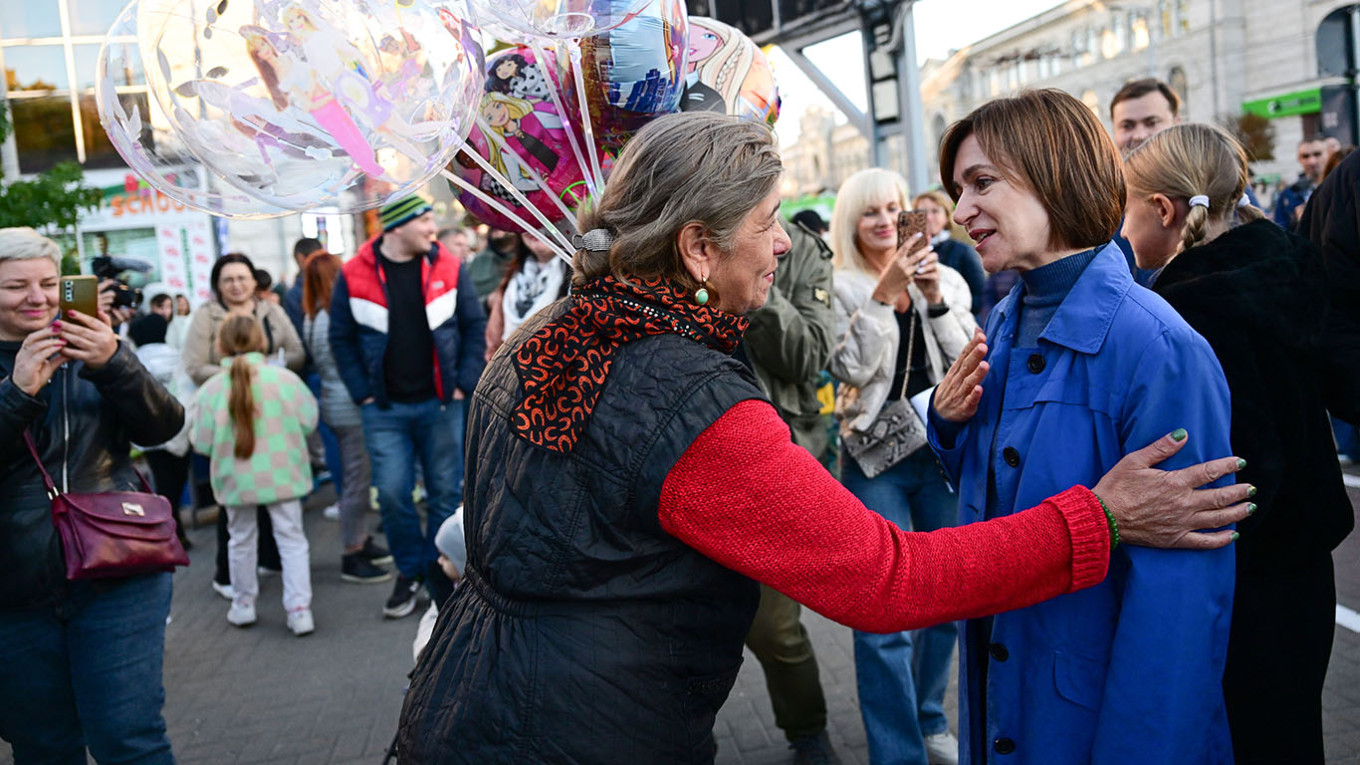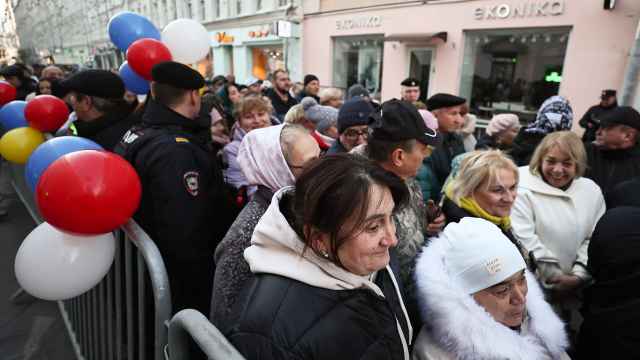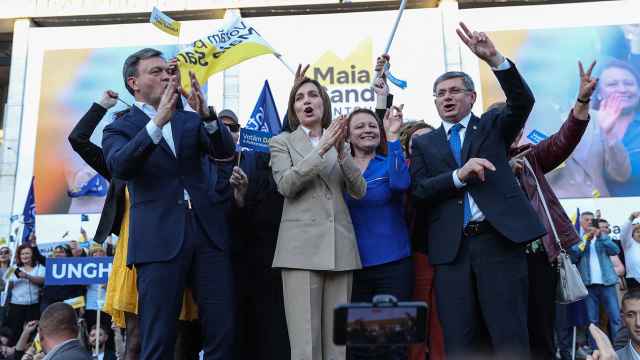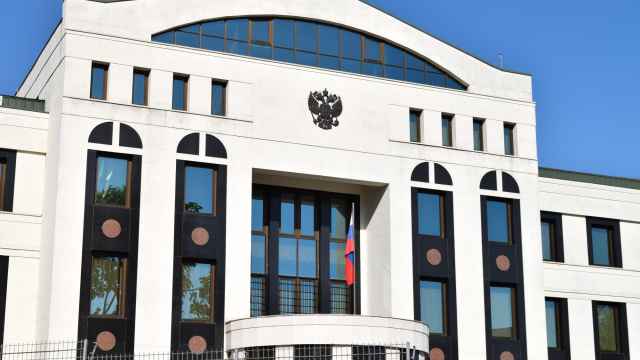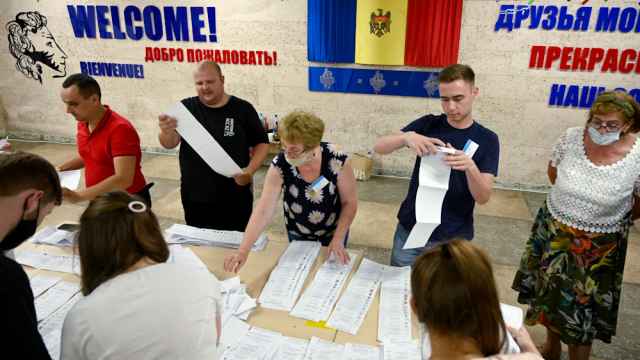As Moldova gears up for its presidential election and EU referendum this Sunday, President Maia Sandu is banking on both her victory and a successful EU referendum, which would mark a decisive moment in her efforts to bring Moldova into the European Union.
In total, 11 candidates are vying for the presidency in the Oct. 20 vote. Current opinion polls favor Sandu, who represents the Party of Action and Solidarity, followed by pro-Russian candidate Alexander Stoianoglo from The Party of Socialists.
For this Eastern European country, the diaspora vote is set to play a crucial role in determining Moldova's path toward European integration — or shifting to a more Russia-aligned future.
One such voter is Oleg Brega, 50, a Moldovan citizen living in neighboring Romania who is a staunch supporter of both Sandu and EU accession.
“I have attended more than 100 protests in Moldova, I ran to be an MP and the mayor of Chisinau,” he told The Moscow Times.
He is one of the roughly 25% of Moldovan citizens who live abroad, many of whom migrate to Europe for work.
In the 2020 election, high voter turnout from the Moldovan diaspora, many of whom favored a European future for their country, reportedly heavily factored in Sandu’s win over then-President Igor Dodon with 57.7% of the vote.
"I would go back to Moldova tomorrow, but I am afraid of the war, Russian rockets, explosions," said Brega, who left Moldova for Romania over 30 years ago for educational and economic opportunities.
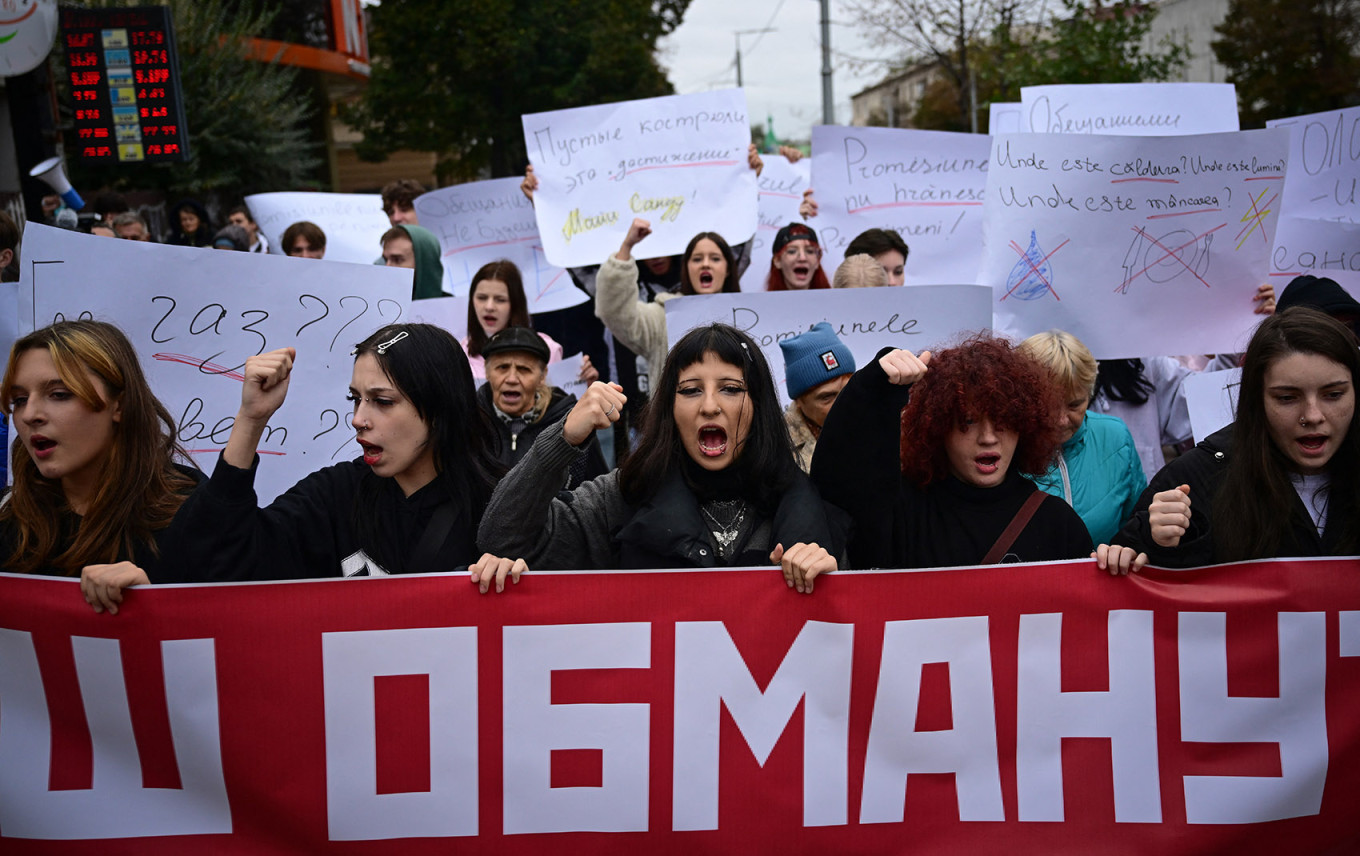
Moldovans account for 40% of immigrants to Romania (285,000 people). The majority of Moldovans have Romanian heritage — and more than 1 million people in this country of about 3 million hold Romanian citizenship. Sandu, who also holds Romanian citizenship, has previously called Romania Moldova’s “best friend.”
For Oleg, Moldova’s recent breakaway from Russian cultural influence under Sandu’s leadership is refreshing.
“I lived in the U.S.S.R. for almost 18 years. In our town, we had only one ethnic Gagauz person and one Russian, but we still had to speak Russian, even though we were Romanian speakers,” he said.
In 2023, Moldova removed Moldovan from its list of official languages, reverting to its real name, Romanian. When Moldova was a part of the U.S.S.R., Romanian was written in the Cyrillic alphabet to distance citizens from their Romanian roots.
In Moldova’s 2020 election, Brega served as an observer for the electoral commission on the Dniester River across from Transnistria, an unrecognized pro-Russia territory between Moldova and Ukraine that hosts approximately 1,000 Russian peacekeepers.
“People were coming across to Moldova to vote in buses, some of whom had been told to vote against Sandu. I spoke to them,” he said.
The leadup to Oct. 20 has seen an uptick in scaremongering reports regarding the country being dragged into the war in Ukraine.
“A disinformation resilience index ranks Moldova as one of the weakest among former Soviet states,” analyst Mamulashvili said, noting that this disinformation is overwhelmingly aimed at “pulling Moldova back into Russia’s sphere of influence.”
And on Wednesday, Chisinau claimed that Russian authorities were planning to undermine the presidential election and EU referendum by bussing in voters to polling stations at the Moldovan Embassy in Moscow.
Though the Kremlin rejects accusations that it is interfering in the upcoming voting, reports said that Russia had put more than $15 million into paying Moldovans to vote against EU accession and to influence the presidential election result, likely against Sandu. A reported 130,000 citizens have been identified by law enforcement.
“I will definitely participate in the upcoming elections,” says 26-year-old Ionut, the owner of a car repair business in the southern Moldovan city of Cahul. “It is a pivotal moment to strengthen our European path.”
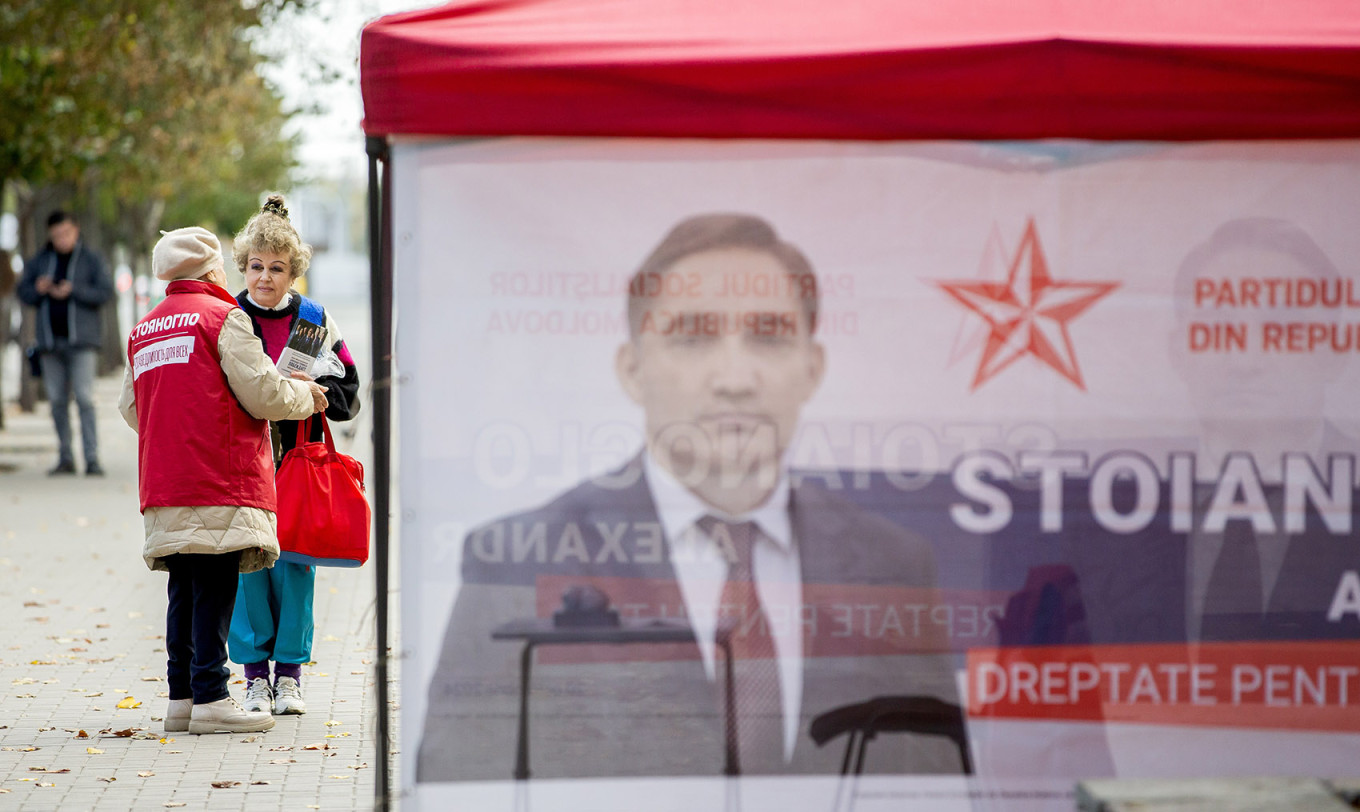
For Ionut, keeping out of Russia’s sphere of influence is imperative.
“If the war does not go in Ukraine’s favor, no one would be safe with Russia as their neighbor. That’s why getting closer to the democratic world is no longer just a desire, but a necessity,” he told The Moscow Times.
“Moldova has never had a president like Sandu before,” Ionut said. “The unblocking of foreign relations, attracting funds, and securing safety guarantees are just a few of Maia Sandu’s accomplishments.”
Since the outbreak of Russia’s full-scale war in Ukraine, Sandu has tried to lessen the country’s reliance on Russian energy, including diversifying electricity sources by connecting to European grids via Romania. The changes to the energy market from the war and other factors like Covid-19 meant that Moldova’s inflation rate spiked to 34% in October 2022, one of the highest in Europe (though it has now fallen to 5%).
Soaring gas and electricity prices led to months of protests in Chisinau, with some demonstrators allegedly paid to participate.
Many of these protests were backed by the pro-Russia Shor Party, whose leader, Ilan Shor, fled from Moldova to Russia after being accused of corruption in 2019.
"I'm still thinking about who to vote for,” says 60-year-old Maria, who plans to vote in Moldova’s presidential election from Greece, where she has lived and worked on a farm since 1996.
After the company she worked for closed its doors, Maria emigrated from Moldova in search of a better salary abroad. Twenty-eight years since she left her home country, Moldova still ranks in the top 10 poorest European countries.
Sandu urges Moldova’s diaspora to return home to help rebuild the country during an annual event called Diaspora Days.
For Maria, Greece has always been a temporary home.
“My children live in Gagauzia. When I receive my pension, I will return,” she told The Moscow Times, referring to a semi-autonomous region in Moldova predominantly populated by the Gagauz people, an ethnic Turkic group.
Geopolitical analyst Irina Mamulashvili described the Moldovan diaspora as “critical in shaping the country’s future.”
“In 2010, there were just 75 stations; in 2021, it grew to 150, and in 2024, we're looking at about 230 polling stations [for Moldovan citizens] abroad,” she told The Moscow Times.
Maria’s home region is generally pro-Russian, a stance openly held by Evghenia Gutul, the Bashkan (governor) of Gagauzia, who was photographed with Russian President Vladimir Putin earlier this year.
Though neutrality is enshrined in Moldova’s constitution, the principle has been debated since the outbreak of full-scale war in Ukraine.
“In Gagauzia’s future, I want people to be able to live and work in whichever way they choose,” Maria said. “I want it to be economically strong but remain neutral — there should be peace in Moldova.”
With more elections approaching in former Soviet states, Mamulashvili said that the Oct. 20 result will “carry weight far beyond Moldova’s borders.”
A positive EU referendum result in particular would be a “critical signal to other countries in the region, such as Georgia,” she said.
Georgia is set hold an election later this month, after what has already been a divisive election season. Around 80% of Georgians support EU accession, but a raft of legislation passed by the ruling Georgian Dream party threatens to derail the country’s European aspirations.
Despite disinformation campaigns and reports of vote-buying, Oleg said he feels confident that the election and referendum will bring about a positive result for Moldova’s European future.
“It will be a huge shock if she loses,” said Oleg. “I feel relaxed that we will win.”
A Message from The Moscow Times:
Dear readers,
We are facing unprecedented challenges. Russia's Prosecutor General's Office has designated The Moscow Times as an "undesirable" organization, criminalizing our work and putting our staff at risk of prosecution. This follows our earlier unjust labeling as a "foreign agent."
These actions are direct attempts to silence independent journalism in Russia. The authorities claim our work "discredits the decisions of the Russian leadership." We see things differently: we strive to provide accurate, unbiased reporting on Russia.
We, the journalists of The Moscow Times, refuse to be silenced. But to continue our work, we need your help.
Your support, no matter how small, makes a world of difference. If you can, please support us monthly starting from just $2. It's quick to set up, and every contribution makes a significant impact.
By supporting The Moscow Times, you're defending open, independent journalism in the face of repression. Thank you for standing with us.
Remind me later.


